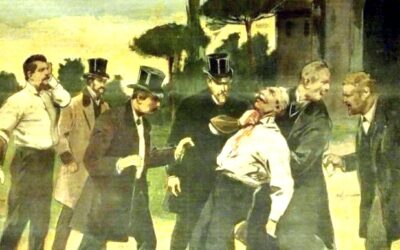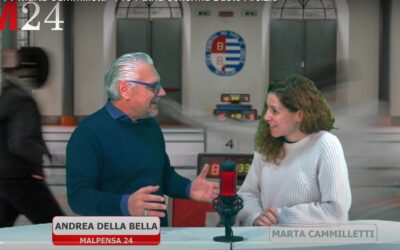It is not the first time that Lara Ortolani, pictured here in her warrior gear, has offered to translate some of my writings on fencing topics. This is a great gift for me at each and every time, but this time she surpassed herself: the text was quite long, and the effort must have been considerable. But she did it, offering me the opportunity to make my notes known to English-speaking readers too. Thank you so much, Lara!
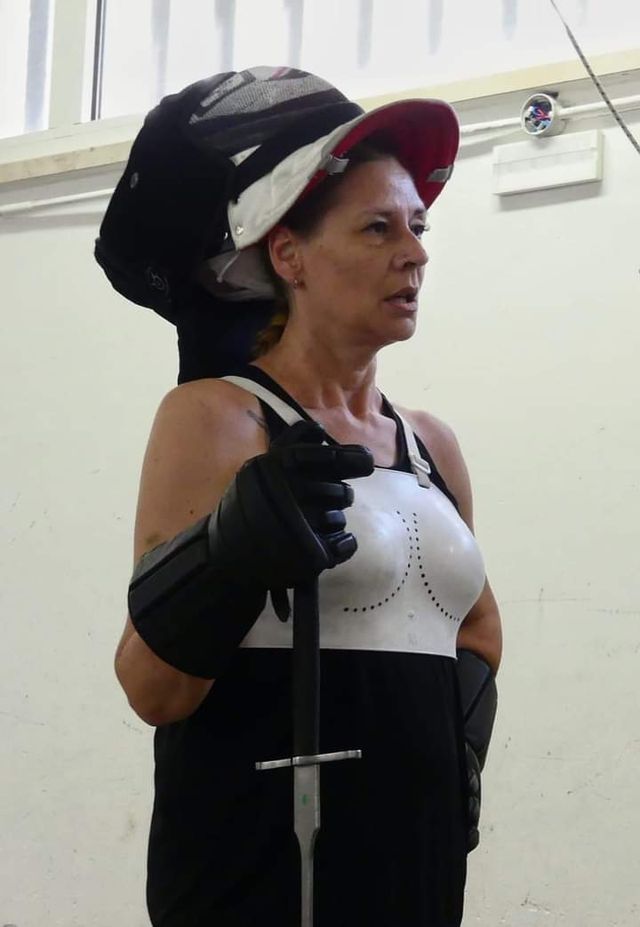
Dear Carlo,
You asked me to write down how do I teach, how I do things that work, and that I myself sometimes don’t know how to do, with people so different from each other. Basically, you lead me towards a work of introspection, and then make it available to those who want to read the result of this excavation experience.
Challenge accepted, and yet somewhat feared. How I see myself, and how others see me (what others?): very different descriptions could come out. It will still be a stimulating, and I think rewarding, path that will tickle my ego. I will try to keep it at bay.
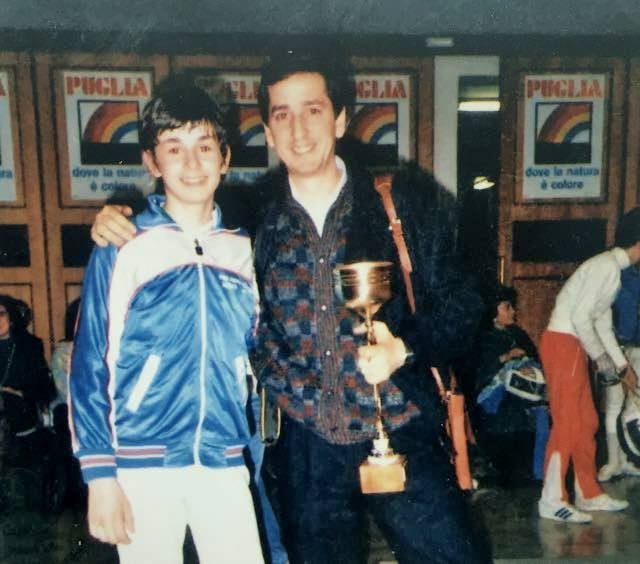
Let’s begin by clearing the field, and clarifying one thing: although I will speak in some cases of techniques, methods, I do not have a user manual: when I am in front of a person – child or adult, male or female, sighted or blind, and so on – who turns to me because he wants advice, or who teaches him/her to do something, the first thing to do, for me, is shut up. Shut up inside, I mean. I have to listen and receive what he has to say to me, before or instead of forcing it through my interpretive grids… if you know what I mean. If this succeeds, and often it succeeds, the other perceives it: he knows that I am giving attention to him/her, will feel welcomed, will be more sympathetic and confident. In other words, before moving forward you need to build a relationship that can work.
One smile always helps, but then you should keep it in the background: you have to take the other seriously, and he has to feel it. I have to figure out soon if he’s there because he wants it, because only the parents want it, or maybe if the fencing room is near the house, and it’s convenient to park the child there. A good welcome, and a little complicity, can turn listlessness, shyness, even fear, into enthusiasm.
So, in the first place we put listening, empathy, respect. It is easy to feel superior, above, to those who come to ask us for advice, or a teaching. But if we realize the responsibility that we take towards that person, the effects that our way of relating to her, of influencing her, can have in positive, but also in negative, on her life, it will be easier to respect her, be attentive, eager to give effective help.
We need to try to achieve a difficult balance: because the relationship is two-way, because it often involves other people – parents, in particular – and it is nowhere written that things should go well, and have the happy ending we desire. You do what you can, you also make mistakes that can be heavy, but if the intention remains positive – the improvement of the other, according to his wishes, and not ours – not just ours – well, the mistake is part of the game of life, and we must accept it, and learn from the lesson it gives us.
And since you ask me, in addition to the story of my experiences, also a kind of user manual, this must be said immediately: you can not give what you do not have. And one does not give the student only what one has, but above all what one is. The improvement of the other, the possible and never certain success of the operation, inexorably passes by self-improvement. A job that never ends.
So, if you want to convey calm, you have to be calm when you need to; if you want to convey confidence and optimism, you have to be the first to possess and nurture them. And if you want to transmit technique, quickly and well, you must first acquire it, or at least know it and understand it.
Then, and we come to the point that most interests you: you must communicate it. In the sense that what you want to transmit must arrive at its destination, and produce the desired change. From the “what”, it passes to the “how”.
Communicate
“You can’t not communicate,” says a well-known axiom of human communication. We give information even when we do nothing. Indeed, sometimes silences say more than words. Unfortunately, the way of using them consciously and effectively is less known and used. But let’s proceed with order.
Let’s skip for now the written and the telematic communication, which also recently had – and probably will in the future – a very important role, also for us who teach fencing: think only about how many messages we send and receive, and how the content and form of those messages can have effects on the recipient.
Let’s limit ourselves to direct communication, today we say “in presence”.
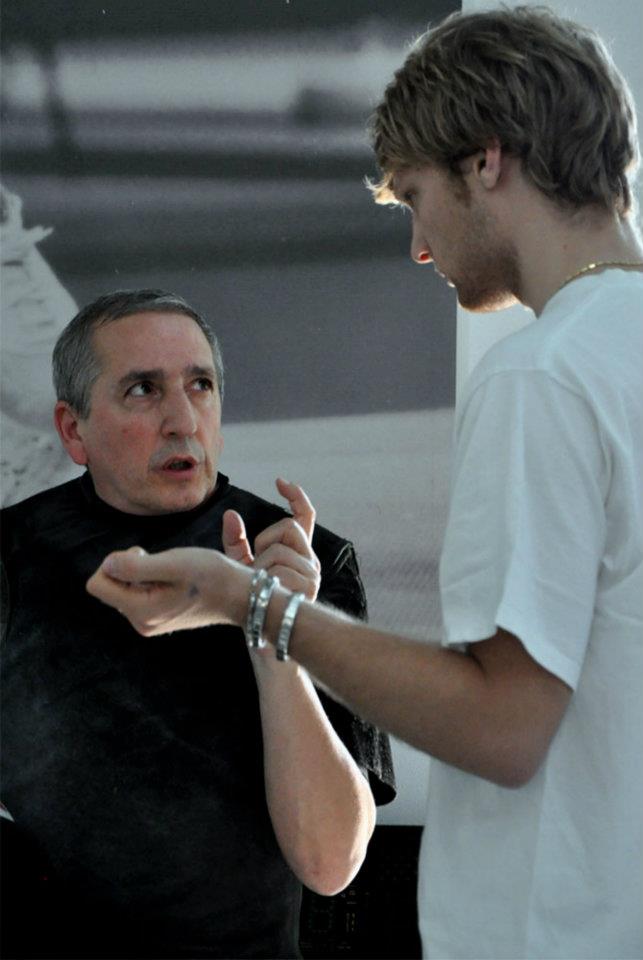
The message can be verbal, paraverbal and non-verbal, and in general we use, to a different extent, all these modes, simultaneously. We tend to give the utmost importance to the explicit content of the verbal message, when paraverbal aspects (tone, volume, rhythm, pauses…) and non-verbal aspects (body language) certainly represent the most important part, from a qualitative and quantitative point of view. To give the desired effectiveness to this most significant part of communication, we must be aware, as much as possible, of what we transmit. And back to the sore point: there are no methods, user manuals. These things are learned, yes, through study and exercise, even in books, but they do not become effective if they do not become part of us, of our nature. It is a bit like walking, which we do now without thinking, each with his own style, despite the fact that it is a very complicated thing: it took us years to be able to stand up and learn…
Now, let us stand in front of our student, and try to control all the non-verbal aspects of our communication: probably he will notice, and we will not seem sincere. If we do not have a real interest and a real willingness towards it, our intervention will be less effective, or even counterproductive. If, instead, this availability, interest, respect, is there, the body and the voice will adapt naturally. You can’t pretend, then: sooner or later they will catch us. But not even the others can do it for a long time, and will outwit us, if we have refined the tools and sensitivity not to be fooled.
You know that I am southern, and half Neapolitan: I feel therefore advantaged by the gestures learned already in the first years of life. But I learned something more from books: if nothing else, to be aware of it. Others, who are less aware, are almost an open book for me: I read quite easily what is behind their words. Body language is revealing: hiding it is difficult, and sooner or later the truth comes out.
The power of eyes and smile
Not only can you not communicate: fortunately, we communicate redundantly. They exchange much more information than necessary, and through various channels.
For me it was a blessing. As you know, I was getting deaf altogether, and even now that I fixed it with a nice cochlear implant, it’s not like things are perfect, especially in noisy environments. When I was young, and the degenerative effects were already felt, I helped myself by reading my lips. This led me to look very carefully at my interlocutor, who felt welcomed and flattered by so much consideration.
You will have noticed that today’s young people, even more than yesterday’s young people, find it difficult to look you in the eye. Their gaze is often low and fleeting. They forgive a lot, this way. You have to help them look up: not just to see you, but to look at you. A smile is always a great help. Even the candies: I make great use of them. A symbolic and material sweetness…
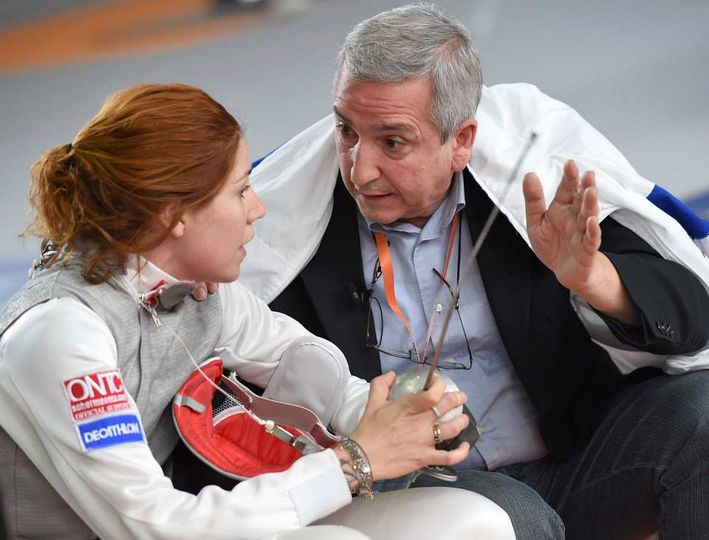
There are cultures – not ours, fortunately – where looking into the eyes is considered aggressive, dominant behavior. The attitude of the body helps to attenuate this sensation. The eyes also have a hypnotic power: in certain emotionally charged moments, an intense and direct gaze, accompanied by the assertive movement of the head, can instill determination and confidence.
You’ll recall I’ve been working a lot on where and how to look during a fencing bout. From that study came interesting applications for the lesson, for the importance of the covered attention, for the sensitivity in feeling the measure. Things very useful in the bout, as useful was teaching to look up, in difficult moments: when you are in crisis you tend to focus on the internal sensations, and in doing so you lower your eyes, losing contact with the opponent. And losing him even with the teacher, who will try in vain to get you his message, his suggestion: you have to work on it first, in training, so as to immediately recognize that feeling, and… lift your gaze!
Confidence.
You can’t take the confidence: they have to give it to you, and they give it to you if you have earned it.
Initially you are given because of your role: you are the master, so you must know more. But if you lose your temper, you do not identify yourself in difficulties, you are sarcastic because you have no solutions, you raise your voice out of turn, you often mistake the advice from the bottom of the piste, so much the fault is always of those who do not understand you, you swell like a turkey and pretend to be what you are not, to know what you don’t know… Initial capital dissipates quickly, and replenishing it is much more difficult.
I try to draw from memory. It is not easy for me, and this is also part of my way of being. Maybe I’m less conditioned by the past because I think very little about it, and that helps me to be more present when it’s needed.
Losing my temper, I said. I remember an episode that taught me a lot. I was in a competition, and I was witnessing the bout of one of my students, Antonio, one of the first I had, when I was teaching at Nedo Nadi’s school in Salerno. If he had won that bout, he would have taken the third category of èpèe – at that time, the ranking was not present yet – and it would have been for me the first time, with one of my students. I was therefore involved more than usual, while after the 14 even, double hits were numerous; even the priority and the toss of the coin were there to come. So, after yet another double, with the athletes ready to lash out again against each other, and I at the bottom of the platform loaded like a spring – I must have had a fever, at that moment – the referee says: “Ready?”. And I, with what breath I had in my body: “Fence!”. It was like another screamed it, I apologized, and suddenly I woke up from that incredible trance. I realized, once and for all, that if I was not calm and lucid, I could give very little to the student. Who fortunately won the same.
I learned, little by little, that the student is reflected in his companion: if he loses his temper, he gets nervous, this state of mind almost inevitably transfers to the athlete. If the referee is wrong, and it happens, a disordered protest can immediately become the alibi for the athlete.
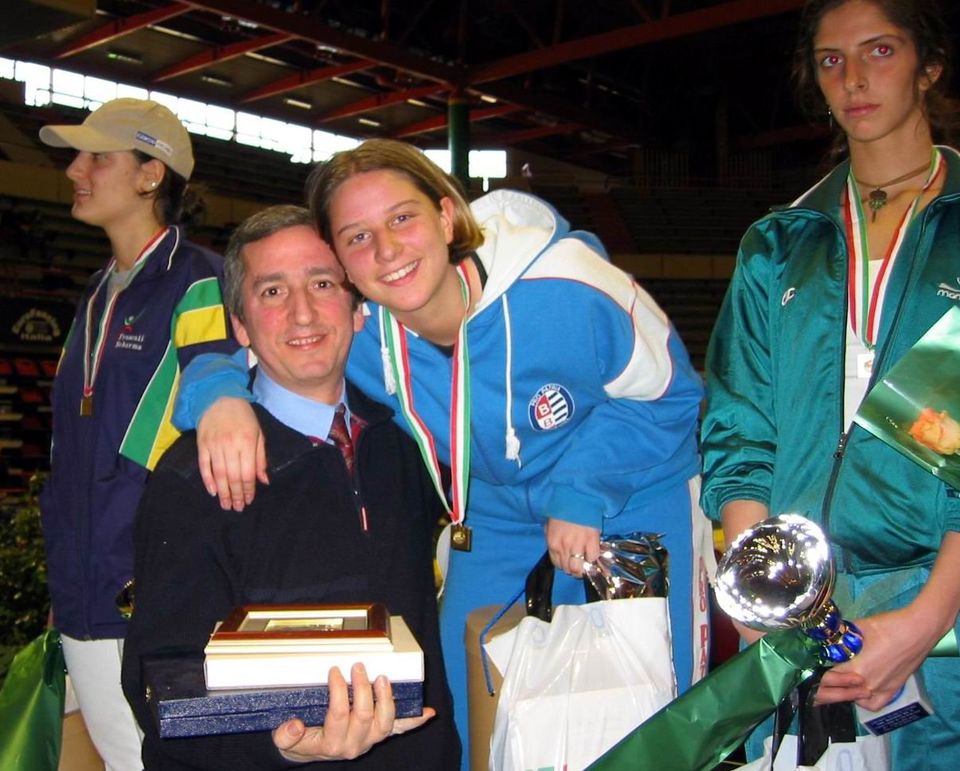
The right advice
There are teachers who say: I gave you eggs, it’s up to you to make the omelet. On the piste there is you, and I do not want to make you dependent on my advice. A little right, a little wrong, if you ask me. The truth perhaps lies in the middle: this continuous search for the right mean, the balance between the various needs, is also part of my character. It is certain that advice given at the bottom of the platform must be essential, quick, I would even say expressive. How many have I heard, of those just wrong, or at best useless! It’s true, sometimes the mere presence, knowing that the master is there to follow us can give some comfort. It’s like saying “Come on! Come on! Hold on!” a moral support that can also be given by a friend or mother…
Sometimes you get to see a bit of comedy. I remember that teacher who took advantage of every break and stealthily passed from one side of the platform to the other, and arrived at the height of his pupil murmured “The point!” or “The measure!”. Or the one who sent his student into total confusion, who was facing mine, obsessively shouting “Wait for him! Don’t let him attack!”. Or that other guy, who was fighting all the time with his student – while he was shooting! – and the referee let it go.
It will have happened to me to make such mistakes, I do not doubt it: but the mistakes of others are always the most obvious. They teach something. Here I like to tell instead of those times I found the right button, solving seemingly dead-end situations. Then we’ll try to make a point.
In the early years of my history as a fencing master I was in Venice, for a test of the Italian championship of young swordsmen. I see one of my students, Antonio, sitting with a curved back, a picture of desolation and pessimism.
“What happened to you?” I ask him.
“They published the live broadcast” he said “and I have to fight against that one there” (an athlete who was already then considered very good, and became famous later).
“So what?”
“I already met him in the round. He beat me five to zero, and I didn’t understand anything…”
I didn’t see the bout, and I couldn’t give him any technical advice. I thought I’d put it on the emotional level.
“So, what do you do? Are you already beaten? Try to imagine, you on the street walking with your girlfriend, and he, taller and stronger than you, takes her under his arm, he moves you sideways, making you a sign to change air… What would you do? Leave or fight?”
The picture I had given him was a little more detailed than this summary, and in the meantime, I observed his reactions. His back was rising, his indignation was rising, his fighting spirit was rising again. At this point, the advice:
“He beat you easy, and expects to do it again. Resist anyway, take time, do not easily give him measure, go to double hit. If you can make it to five even, he’ll break.”
And so it was. At that time, there were the recoveries, and the two encountered themselves in the final. The clear victory of mine, in the direct bout, was almost a bureaucratic practice. Yet, nothing had changed in the technique of both. What had changed? Emotion, motivation, confidence. Mind and heart make a difference, if you’re not lacking in body, technique and tactics.
I can think of another episode where the emotional part was the most important. Final bout for victory, in an Italian young èpèe championship. In front of Maddalena, my student, there is an epeeiste who would later be in the national team for years, with notable successes. Madda starts in advantage, and leads clearly for the whole first fraction. Then, inexplicably, she turned off. It seems as if he wants to pass victory. It saved us the second break.
“What happens to you? “, I said.
“I don’t deserve to win. I haven’t been committed all year, and now I almost feel like I’m stealing”.
This dialogue took place with the FIS President sitting next to us.
I say to her, staring at her with an air of reproach: “What am I doing here? If you didn’t feel like fencing, you didn’t have to come to this competition. You are disrespecting everyone, me, your opponents, your opponent for the title, who will not enjoy a victory like this”.
A few seconds to digest the blow. We look back into the eyes. She took it. Deep down, that’s what she wanted to hear.
“Now go and turn her upside down!”
And so it happened, in less than a minute. Italian champion. The technique and tactics, we did not even mention them.
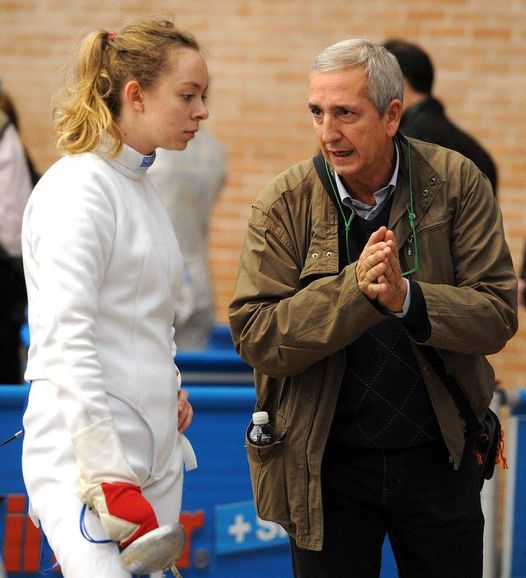
The importance of words
There are many ways of using language, words. I recognize the effectiveness of ways diametrically opposed to mine, and I often try to use them. But I struggle, and I’ll try to explain why.
I like the logical language, clear, and at the same time simple. I know that my writings and speeches are appreciated for this, and I must say that this way of expressing myself works. However, I had to deal with very good teachers who used a completely different language: to me it seemed smoky, elusive, perhaps devoid of real content. And yet that worked too. It took me a long time to figure out why, and I think I did.
Meanwhile, I have to say that those masters – one of them he was, the other most likely – were dyslexic. They didn’t do it on purpose, I mean, and yet they were able to communicate their own unorthodox view of things, and therefore, in certain places, brilliant. Forgive me their excellent students. For their ‘lack’ they have left nothing, or very little, of writings related to technique. I mean, things written so that you read them, and then you can try to do what they did. And maybe you can do it.
I remember, of both, the questions that remained suspended in the air, when the athlete turned around waiting for advice: “So what? Then what?”
If you asked a question, the answer you wanted never came, except in the form of a new question. You had to find the answer. That “so what?” remained suspended in your head, and you found your answer. Maybe different from what someone else found. But it was yours, and the intended effect was just that, to make you search. Little or nothing out of the prepackaged. A system that is not good for building a machine, or for writing a technical manual, but for people, yes, because it activates the answers that maybe, and I underline maybe, you already have inside.
I find myself uncomfortable with this system, and I am in numerous company. But the results are not discussed, even if they cannot be reduced to this.
On my own, I was moved by another desire. I wanted to be a researcher, and I brought this attitude of mine into fencing. The answers I wanted and still want must be clear and sharp. Underneath, I hope that my students also appreciate this style, as I have appreciated it.
Even in giving suggestions, I prefer the direct method. Yet tactics, as I understand it, should sometimes suggest the opposite. I still have a lot to learn.
Speak positively!
An old story, always valid, tells of an apprentice alchemist, convinced that his master had discovered the secret of the philosopher’s stone, to turn lead into gold. Every day, therefore, he distressed, tormented, begged him, hoping to be told the secret. Eventually the master capitulated, and explained to him a complicated procedure to get the result. The apprentice, happy, was about to take leave, when the teacher told him, “I forgot. It is absolutely necessary that during the whole process you never think about a white horse”. That horse became the obsession of the poor assistant, condemned to failure by that diabolical suggestion.
Bottom line: our brain doesn’t work in negative. It can’t do it, or the operation slows him/her down. If in the course of an bout you say to the student: “Do not parry fourth!” do not be surprised if immediately after it will parry on the fourth. Tell him what he should do (“Parry on the third!”) and not what he should not do. Especially if time is short, and the reaction must be immediate. Therefore, abolish even silly phrases like “You must not be afraid!”. Tell him instead to be brave, as he proved to be on other occasions, or as his favorite hero.
Even more useful is learning to restructure his fear, his crippling emotion. I’ve done it many times. He comes to you, him or her, right before a competition, and he tells you he/she’s scared. Shit, like you say here, he shits himself. He expects a few words of comfort, or the usual silly phrase above. Instead try to tell him: “Very well! I would be worried if you didn’t. Everyone is afraid before a difficult confrontation. The difference is only in how you handle it.” And here are some examples, personal or not, of the time that… and then some suggestions, for example on breathing, on posture, and finally the advice: “Go, you’ll fence well, you’ll see” or the paradoxical command: “I want you to win this bout. It’s an order!”. Which means I believe in you, so you can do it.
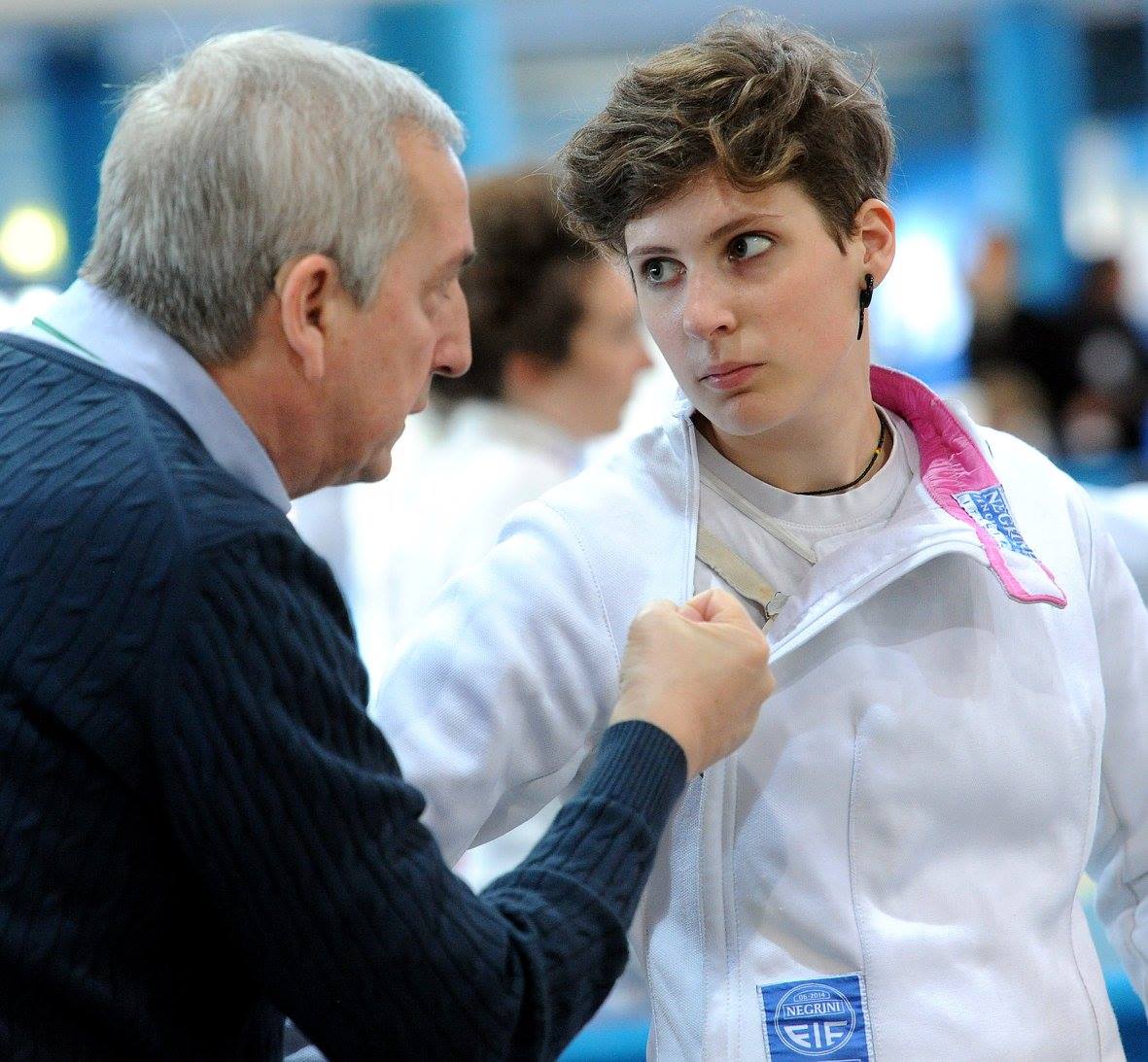
Stick and carrot
Some metaphorical beating sometimes takes, can give the decisive shock. But it seems to me that too often we prefer the reproach: to find what is wrong, and to bring the spotlight on that. If things don’t balance out, it’s no wonder if the athlete loses confidence.
Reproach guilt. If there is a mistake, you can correct it. But if you are the wrong one, there is little to do.
Before beating, you will need to reinforce the shoulders of those who will receive them. “Strong shoulders” means self-confidence. How to make it grow? I think the best way is to value the good there is. Even the biggest loser (I borrow this word from you) of the students, among the many things he does not know how to do, will have one that will do well, or benign. On that we must turn the spotlight, appreciating and praising. Accustomed to being scolded, a praise, but also more than one, will make him/her wish to commit, to earn more. Self-esteem will grow, so much. Even if he/she will not become a champion, and it is not said that he/she does not become one, a person more satisfied with himself/herself will come out of it.
I remember Matteo, a sabreur. He threw some blows… the thumb of my damaged right hand still suffers of them. The finesse of the gesture just didn’t seem to do for him. But good will was there. We put him to arbitrate, he was good, he liked it. By arbitrating, he better understood what he was doing and he improved a lot, until he entered a national youth final. Today he is a surgeon. Maybe fencing helped him in every way.
Then there was Alice, who just didn’t want to compete. She was afraid of confrontation, of defeat. She had a little combative image of herself. At the first occasion when she took out a minimum of combativeness, on the platform, I praised what she did not have yet, and nicknamed it “Alice werewolf”. I was inspired by the werewolf I was when I was a child. She liked it, gradually she got into the character. She has no idea how happy I was to see her on the first step of the podium in an important race.
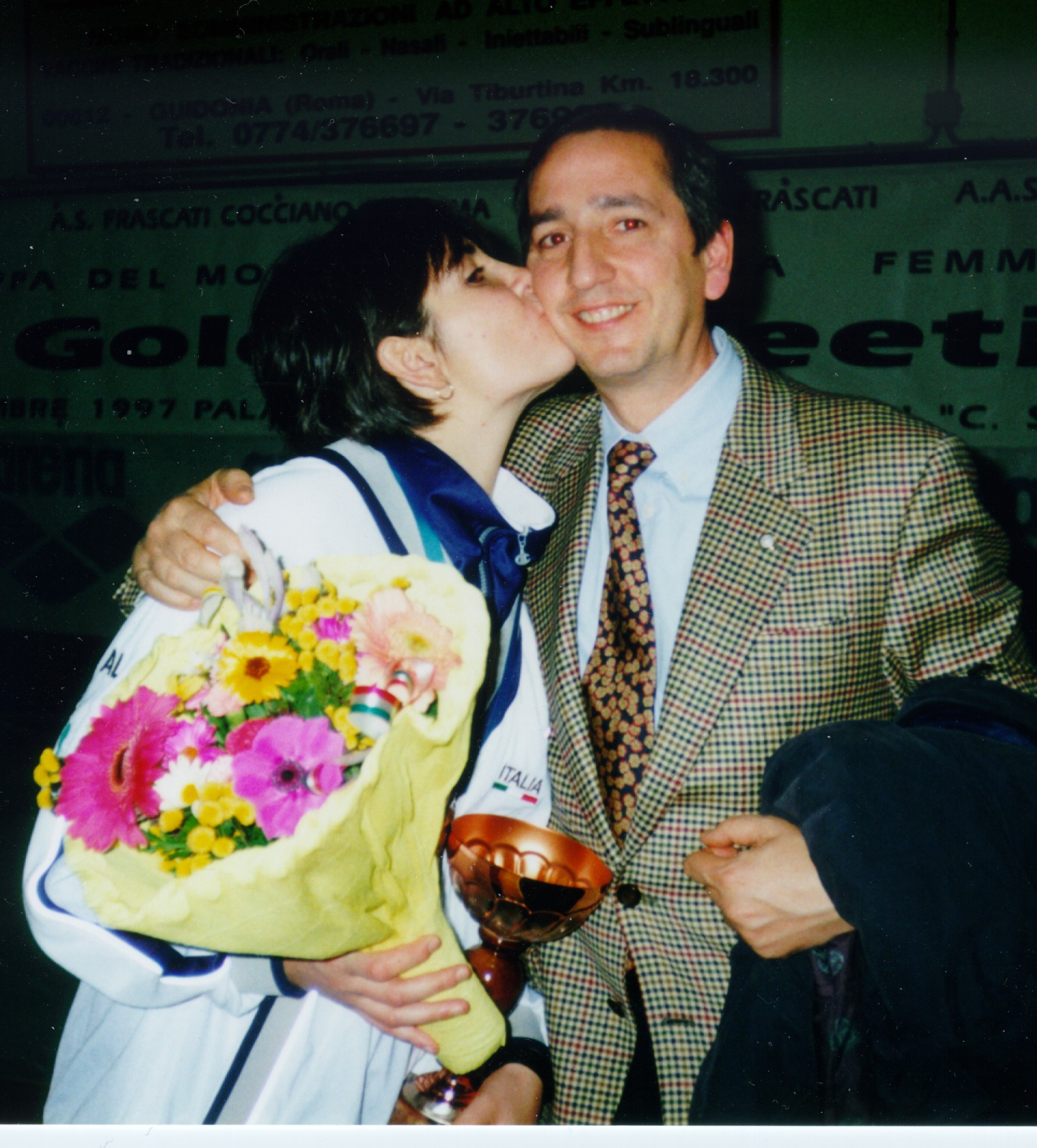
Breathe, and put a crown on your head
Building self-esteem… a thing! But you have to move on to facts. From theory to practice.
I had a little experience in Judo, and even when I switched to fencing – I was now at university – I maintained a considerable interest in Eastern martial disciplines. Something I also transferred into my sport, and perhaps the most important of these is the focus on the breath. I didn’t content myself with reading theories: I changed the way I breathe, starting from the diaphragm, and I gained health, self-control, and in other fields. Logical, then try to transfer this skill to the pupils. I must say that it works: the awareness of the breath leads to understand how the moods are closely connected to him. You change one, you change others, and it works the other way around. Breathing goes by itself, it doesn’t need your attention to do its job. If you think about it, this is enough to alter it. If you change it, it also changes your mood. It’s really worth working on.
Here in the north of Italy, I have noticed that it is more difficult to get the voice out: we are used to considering it an act of rudeness. Yet, in all martial arts, the effectiveness of the gesture is enhanced by the emission of the voice: which must start from the bottom: the diaphragm, once again. With the scream you unlock, and you unlock yourself, you throw out the air spoiled from the bottom of the lungs (forgive the approximation, but makes the idea) and let new air enter and revitalizing.
It’s much more productive to do something than to think. Sometimes the two work well together. I often tell pupils to stand up straight, but I find that it is often not enough. Then I resort to metaphors. I’ll tell you my favorite.
It often happens to see an athlete, after an bout gone wrong, sitting with his back curved, and his gaze in the void… the attitude of the loser, not just the one who has lost. So, let’s try to change things. I say:
“Look around, see the room, things and people. Imagine that all this is yours. You are the King of England (or the Queen ) and you enter this space, where there are your subjects and your properties. You get up and walk, with the crown on your head: how do you do it? How is your gaze, how do you breathe, what position do your head and your spine take?”
I see he/she’s starting to think about it, he/she likes the idea, his attitude changes. I tell him/her to take the crown and put it on his head, and doing ‘as if’, whenever he feels a little down. He smiles.
Afterwards, it will be enough to cross his gaze, just to mention the gesture of putting the crown on his head, and something inside him will change.
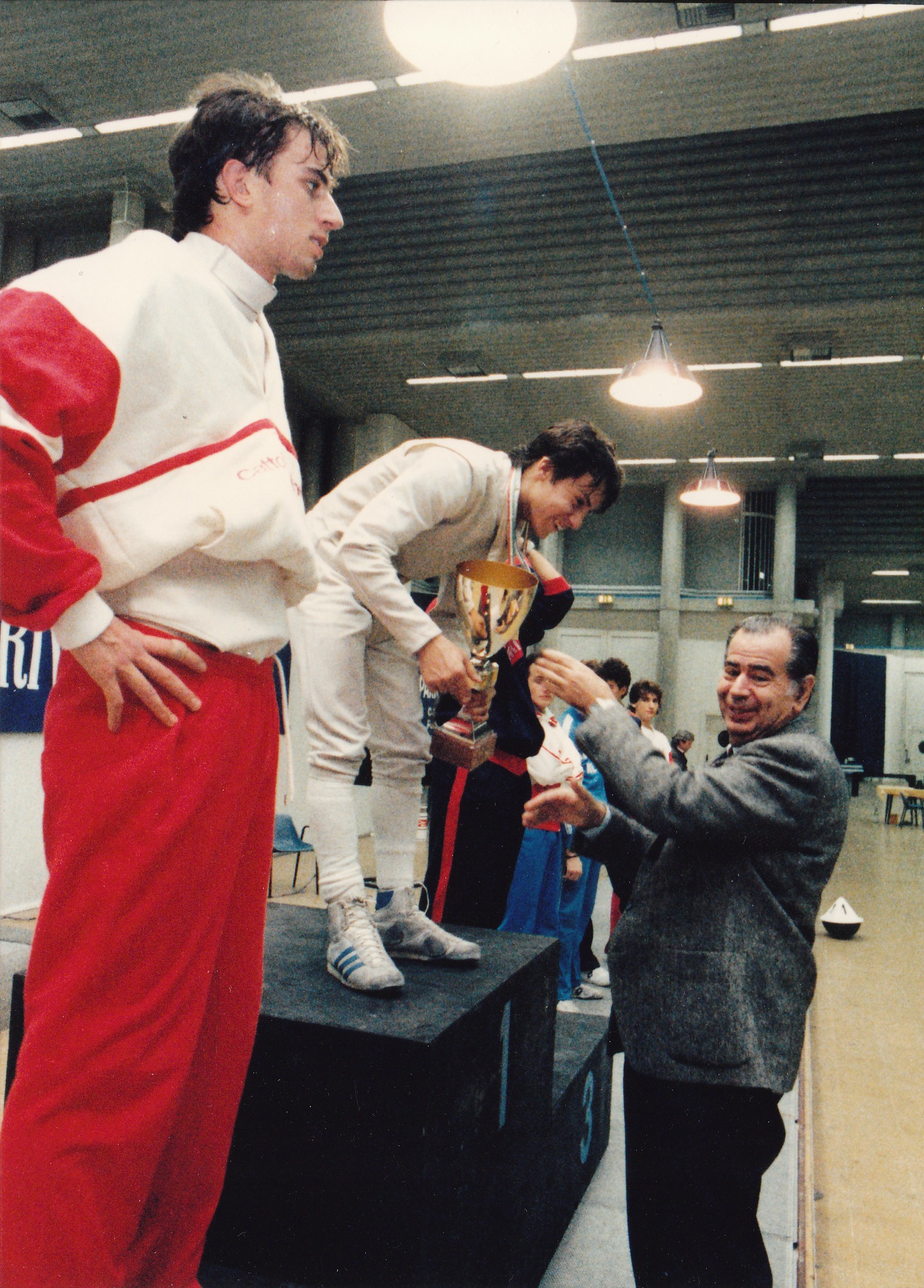
Clever parents
Parents are indispensable, there is no need to prove it. When it comes to it, they seem to be just a pain in the … Sometimes it’s also true, but with what they invest in time and money, they’ll also have the right to be their children’s fans! We must have them as allies, and not just see them as obstacles. Yet, days of work can be frustrated by a malicious comment, by a simple raising of the eyebrow, by an encouragement, in the intentions, that proves destructive and anxiogenic. You have to work on them too, and you don’t always get the desired result.
When I taught in Salerno there was a very young left-handed girl, a very good one, with an intrusive and very negative dad on the mood of the daughter: she felt obliged to the result, not to disappoint him, not to mention the discussions at home, of which I then got the echo. At the Italian Youth Championship of that year, in Rome, this dad managed to do his worst. He called me, while I was following other athletes. He told me that his daughter, in the semi-final of a round of six athletes that led to the final, the girl already had one foot out, because of two defeats. He begged me to help him: we both knew that a great result was within his reach, but she was on the verge of elimination. I told him hard-nose that I would have helped him, on condition that he went out of the hall, away from the sight of his daughter. He gave in. He left. The daughter made the three victories that were needed, and passed. Then, I left for Busto, and he regained control of the situation. He had not understood the lesson, and the daughter paid the consequences.
In Busto Arsizio things went better. Sara’s fan dad was cheering her on, yelling, and the more agitated he got the more she closed up, looked down, and made less than she could. One day we had to go to the championships that gave the Italian titles of third and fourth category of foil. I became friends with her father, so I decided to ask him to stay home for the first time.
It did not please him, we argued but finally he agreed. The daughter won the title of the fourth category. Maybe even luck got the hand, but the fact was indisputable. His father took the hit, and he told me he wouldn’t come to fencing if he wasn’t sure he could control himself first. And he did it!
The night before the exams
I steal the title of a well-known Italian movie, because we also have exams, and the day before the race can be very important. A serene evening at the table, eating well and chatting cheerfully, removes or attenuates anxiety. Good-natured jokes, jokes, conjuring tricks, every little thing counts. But not everything is good for everyone. The logic problems, the games, the riddles, I’ve always liked, and I’ve often proposed them to my pupils. They are a powerful stimulus to reason, to find solutions to problems. Origami also falls into this category. Easy to make items, and to give, that bring with them the wonder hidden in the magic of the folds of a simple and humble sheet of paper. A metaphor, perhaps, of what can also be extracted from people, from those you would not expect…
I have had athletes very different from each other, for physical and mental characteristics. Athletes sometimes small, according to someone’s opinion, too small to emerge. But they did it. Fencing does not accept pre-packaged models: the jockey must be small, like the gymnast, while the basketball player must be tall. The boxer must be sturdy, and for him there are weight categories, which in fencing there are not. Other factors matter more, and you have to bring them out. Master Perone told me one day not to neglect anyone: he had seen the champion flourish in people from whom he just did not expect it.
It has often happened to me too. Maybe not really a champion, but an athlete capable of results that I would not have predicted. Others, on the other hand, showed talent immediately. Matthew was one of them.
I remember him the day before his victory at the World Youth Championship in Genoa. A highly emotional athlete, but he hid this problem well. We also prepared him for possible arbitrary errors, deliberately beating him, until he got angry, and then revealed him the joke, and let him understand that he could and should control himself. He remembered that in the final, when a referee was about to derail him, and he managed to get back on the right track. But the determining factor, in my opinion, happened the day before. Someone had entered the club where the athletes kept the bags, and had done damages. Matthew had some responsibility. He suffered a heavy “bollocking” from CT Attilio Fini, who feared a lot, and was put on guard at the room. The fear of the CT drove away the one of the upcoming competition. I thought the next day he would have fenced at the top, and so it was.
I remember another episode in which the choices made were successful, with a decisive help of Madame Fortune. Daniele was another small athlete, but strong-willed and talented, who today wears his Olympic medal. He had to participate in his third category championship of foil, but I convinced him to participate, two days before, also to the championship of saber: he had some problem of management of the measure, and I thought that the saber race would help him. He came in third, I think, but a couple of things happened that really bothered me. The first was that a teacher who was very dear to me, and who especially loved foil, told his parents that making him a saber was harmful. The parents came to tell me, and I got angry: if they had more confidence in another teacher, I said, they would adjust accordingly. To complicate matters, Daniel sprained his ankle. He returned home, and returned with his ankle bandaged, two days later, for the foil competition. It started badly, and I already thought that I would be thrown the wrong choice… Then, the incredible and decisive bout. The direct race was then to ten blows. Daniele was losing badly, he was at a hit from defeat, with an abysmal disadvantage. Madama Fortuna passed, something snapped inside him, who knows. He came back, hit after hit, and won the bout. The rest of the race was a walk in the park, and he won that title. I was lucky.
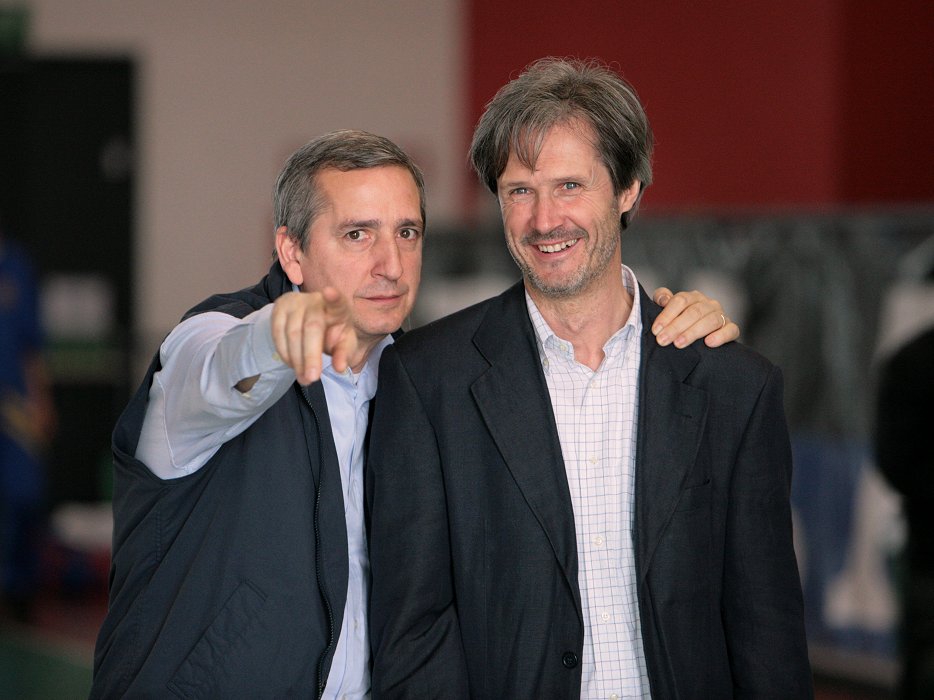
Technical advice
So far, we have spoken above all about motivation, about emotions, about solutions – only sometimes, unfortunately – to give a push, to remove a block. The emotional part is always there, even talking about technique or tactics, and you cannot evade it. But sometimes you just need the technical advice, the solution that the athlete on the piste at that time does not see, cannot find alone. Sometimes you have a moment, the athlete who turns to you, what can you give him, what can you tell him? He/she will mirror himself/herself in you, so you will have to keep calm, while showing participation. A gesture is worth more than words: a known gesture, done who knows how many times in training. The palms of the hands approaching, or moving away to tell him to look for a different measure. The hand going down, asking to slow the pace, or upwards, asking you to raise it. Or to mimic a specific parade, a stop, indicate an area of the piste where to stand, the clock to pass the time or attempt recovery. Screaming is not necessary, under the mask it is difficult to understand, and long sentences are absolutely to be avoided: they serve to calm your anxieties, not his, which so magnify.
Do not forget, then, that the athlete turns his back, while his opponent is in front. The more cunning are very careful to grasp the suggestion and to predispose the contrary.
Other times you have a little more time, you’ll have to make the most of it. Sometimes you will have to overcome the resistance of those who look for an alibi, and he/she starts absurdly arguing, wasting precious energy: better to deal with these possibilities in time, talk about them first, away from the race. There is weapon and weapon, and there are also those who do not like advices. Right, there is more autonomy, the analysis we will make it later.
When advice is welcome, and so you can give it, do not gesture too much: the opponent, and his companion, could understand everything, and take advantage of it. I did it too.
I remember many episodes in which the technical advice was decisive. The dearest of these memories is linked to an absolute Italian title, once again a female èpèe. Serena, my pupil, was losing the bout for the first eight, against the outgoing Italian champion. She was under two hits, the situation was difficult, for the little time left and for the experience of her opponent: I understood that she would logically seek the double blow. I pointed on that. In a few seconds I explained to Serena, very attentive, a blow never tried before in class. A counter-time in flèche with a feint at the mask and parade of second, response to the detachment above. The feint would have to be decided and get almost to the target. And the blow succeeded, two, three times. It’s final, it will be Italian title. That blow, learned only by viewing it, without being able to try it, will remain her favorite. Here is the technique, there is the tactic, there is the intensity and emotion of the moment: the emotional component promotes instant and lasting learning. But the suggestion must be decided, sure, without perhaps: it must pass the idea that it will succeed. Do it and you will succeed! You can! I believe in you!
Being able to read
Giving good advice is possible if you knew how to read the situation, which has its assumptions – the previous story – and its actors, the pupil and his opponents.
Reading people, as I said, requires your availability, your maximum attention, and a whole lot of things that you will have to keep learning for a lifetime.
A little less difficult is to read the bout, understand the phases, the changes, and that part that precedes the decisive action, and we call generically preparation: without anyone has ever taken the trouble to define it properly, fixing the motives and borders. This is why when you compare yourself, between two experts in the field, you discover that everyone has seen a different movie, so there will be two tips sometimes very different, sometimes opposite. So you cannot follow both, and it is good that at the bottom of the piste there is only one person to suggest. The suggestion may be wrong, but trust counts more. Assuming the student has the ability to accept it, that suggestion… After all, what are we going to do when we accompany? If you are not there, they will tell you that “the others” had “all” the master at the bottom of the platform. If you are, you must also be lucky enough to find the right switch at the right time.
Marco told me this, and I’ll give it to you this way: team race, we’re losing against the other team, I won’t tell you which city. The master of the opponents arrives, and immediately intervenes heavily, sowing nervousness in spades. “Thank God he’s here,” Marco thinks, and in fact, our people are able to take advantage of that nervousness and win. Paradoxical, right? Excess pressure is not always good for the health of the team.
There are also cases when your presence is necessary, indispensable, saving. You realize this from the attitude of parents.
We were in Naples, I think the year of the Scudetto of Maradona, and the foil competition was starting. Marina, who had the èpèe contest the next day, or the afternoon, I don’t remember, was arriving at the airport. We had to go and get her. I asked Daniele’s father, who had to fence, to take my car and go to Capodichino airport. “Not in my life!” he answers me. “Driving through Naples, today then, with the chaos that there is in the streets. Not even a dream!”. “Well”, I told him. “I’ll go get Marina, and you will follow your son.”
Panic and my wife offers to guide him. I staid. When he came back, with Marina, he looks like the hero of Both Worlds. He did very well, and he also enjoyed ignoring the red lights that could be ignored – Anna thought to point them out to him – and to respect others. We told each other for months, this adventure. Was I so necessary at the bottom of the platform?
Rome, Youth Grand Prix. Andrea plays the Italian title against a Paduan, who abuses the fake common time, to send you to empty and resume. I tell him to take one more step: instead of just one step forward and lunge, two steps without hesitation and then the blow. He touches, the other does not change, repeats and wins. The master of the other comes to congratulate him. “But you gave him all the right advice!” he says. I look at him crooked…
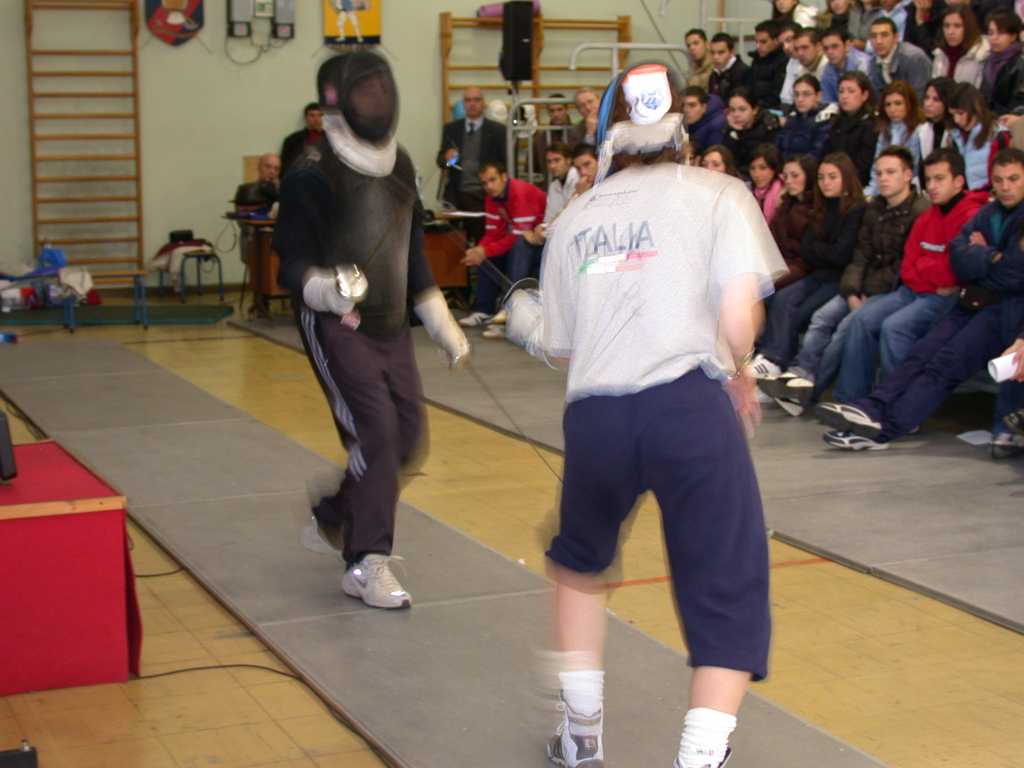
Tell and prove
Speaking simple and clear is certainly important, but often the example is more important. Asking for a well-done movement, and showing it badly, is not exactly what it takes. If you can’t do it right, use the example of a better athlete.
A movement, an exercise, a game, will be successful if presented in a fun way, and if you show that it can be done: however, you must always choose one that is difficult, but achievable, within the reach of the pupils. If too easy it bores, if too difficult it discourages.
Enter the competition where possible is a powerful stimulus for the whole group. Competition with others, or with yourself: the search for personal records. Some small tricks can help.
I’ve already told you how important I am to my breath. You can work on the slow and prolonged emission of breath, or apnea, easily measurable with the chronometer.
I remember about Giorgia, who after thirty seconds couldn’t hold her breath anymore, it seemed her impassable limit. So, I decided to cheat her. I counted the time, with the stopwatch in my hand, every five seconds. I started cheating, and I said five when it was actually ten seconds. She reached thirty, and took her breath again, convinced that she had reached the usual limit: I showed her the chronometer, which marked about a minute. She widened her eyes, tried alone, and soon after her record had risen to almost a minute and a half!
Among the many games designed or adapted to the needs of fencing, those on reflexes and those on time are among my favorites. Knowing how to take one glove before the other takes it off, especially if you are ahead in the years and the student is young and fast, allows you to understand many essential details, and with fun: learning improves enormously in an atmosphere of tension and positive emotion.
Exercises on the choice of time – think of those with the rope that you have done so many times too – require attention and total concentration. For me they are fantastic! Teaching them to blind children, Laura and Alessandro, is a real pleasure. They take time to hear the noise, and those who see them are stunned.
These exercises, along with many others, introduce you to the finer aspects of fencing, break the monotony of repeated series, increase your skills, and… they are very fun!
Groups, breaks and silences
Before talking about the individual lesson, something about groups: fencing legs, collective exercises, meetings to take stock of the situation, and so on.
If you lead, you must have everyone’s attention. If even one does his own thing, or starts talking to the neighbor while you talk, the worst thing you can do is get upset, raise your voice, scold: the sympathy of many others will move towards the attacked, and the atmosphere will no longer be the right one.
I found that my sudden silence, perhaps accompanied by a smile, and a direct look at the disturber, works much better. Feeling at the center of attention, and identified as an element of disorder, will immediately change attitude. A witty joke, but not sarcastic, will break the tension. You laugh together, you leave, you feel group.
Gymnastics is often done in groups. When you do the circuits, in which everyone performs different exercises, the guys must already be capable of a certain autonomy, and you will have to divide your attention equally, quickly passing from one to another. Then when you move on to what everyone now calls “legs fencing”, all in front of you, and you conducting the orchestra, you have a magnificent opportunity to learn the importance of pauses, gestures, times. Also of the look: they will feel that you look at them all, that you have attention for each of them. Corrections should be very quick, a gesture, a glare, a look of approval with a nod of the head. And pauses.
When I see driving fencing legs exercises with seamless movements, without breaks, I also see a group that easily flakes, loses synchronism. Step forward. Stop. Two steps back. Stop. Two steps forward and lunge. Stop. Flèche from the lunge. Stop. Rest, dissolve. The legs work, there is time to control and feel your movement. The master does not speak, he guides with gestures and eyes. The group functions as a unit, and it is a pleasure to look at it, and feel part of it.
When this way of doing has been assimilated, it will be up to them to lead the group, in turn. Easy things, at first. Read in the eyes of the little ones, or the less good ones, the satisfaction and pride of having led so many people.
And finally, the exercises in pairs, with the weapon. Plastic florets solved the problem of safety and fear of pain. You don’t get hurt, you don’t need big protections. But you have to know how to give the blade, and for certain actions it is difficult. Mistakes can be frustrating. With adults you can give more detailed explanations, with children you have to look for simplicity. I still wonder how a person turns, even a very young person, if you give them a responsibility. “You’re good at this. Now teach it to him, who still cannot do it”.
And what seemed like a boring operation turns into a scrupulously “professional” task. If you can teach someone else it means you’re good, your self-esteem takes flight.
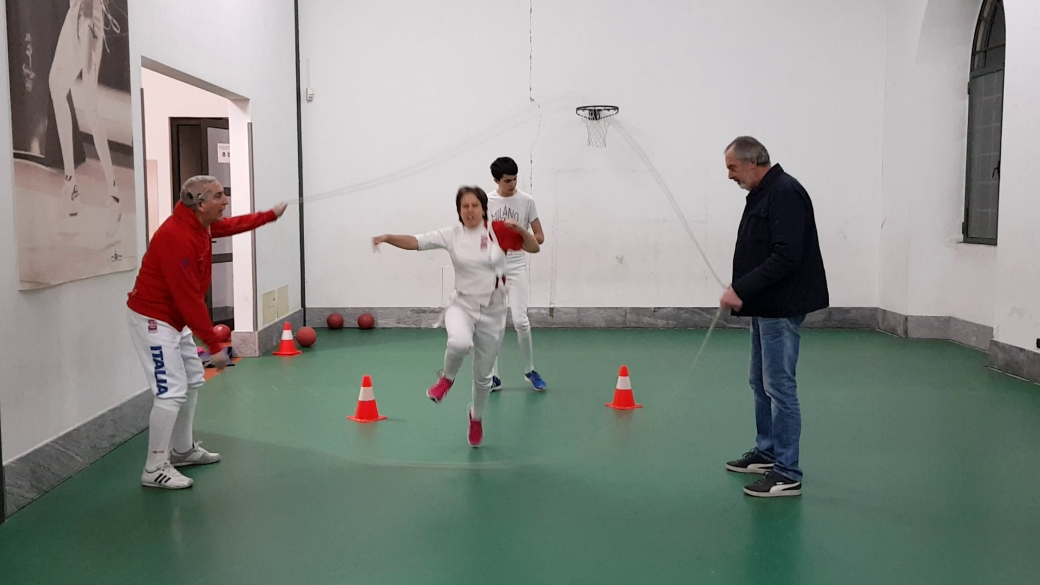
The lesson, not just fencing
Finally, the lesson: we got there. You learn the technique, you like it, you can solve doubts, find yourself faced with difficulties calibrated on your abilities. Unfortunately, in the schools you also have to make ends meet, and you focus more on the best students. Initial training is the most important. When the athlete has reached a certain autonomy, certain things can develop even alone, during the bouts: the teacher’s interventions can thin out. They are for tuning. Fundamentals, you must learn them first.
It is true that the needs are different, and often they are of psychological nature. There are those who feel well if they can take lessons every day, even if they do not receive anything new. There are those who do not feel they need it: they are the less mechanical fencers, more “head”, sharpen at the fire of the platform. I was one of those. And there are those – not just parents – who weigh the time you have dedicated to the lesson of this or that, as if it were from the grocer. But you are at the doctor, a kind of doctor: there are no equal medicines for everyone. But you want attention. You come in feeling sick, you come out feeling healed, and all you’ve had is words and attention.
So, the student stands in front of you, greets you, warns him. You stop him, approach him and ask him: “What do you want to do today?”. If the answer is, “I don’t know, what you want,” we’re off to a bad start. I know what you need, but I want your questions, too. You must be curious, be thirsty, ask me specific questions. There is this opponent that I do not know how to deal with, this blow that I cannot parry. Then describe it to me! The mere fact of having to describe it forces the student to use with properties the terms of fencing, to articulate a reasoning, to remember.
Tommy was training, good, fast, I was watching him. He takes a hit, he goes back on guard. He takes one just like it, and then another again. But he doesn’t change. I stop the bout and ask: “What action did you do”. He doesn’t know. Then, to please me, it brings out reminiscences that have nothing to do with what happened. It’s not that I’m not able to understand. He simply doesn’t remember. You have already deleted the video of what happened. On what basis can you possibly build a contrary one?
From that moment, to him and to others, I often ask that question, immediately after a blow given or received. You accustom them to remember, and to describe. It takes time, but it is time well spent. Then I invite them to give them, every time, this analysis. Even this time on the platform is “lesson”, but often the customer of the grocer, the one before, does not take into account…
Maybe I was a little presumptuous in saying, earlier, that I know what he needs. I assume, after all, it’s my job. But there is no way, a universal method. Even on the technique, two masters cannot agree, as if they were virologists. Everyone follows his idea, convinced that it is the right one, or holding on to what he has heard or seen others do. What they say, in a good way, “steal the job”. I also stole here and there, but then I tried to build my own building, my own theory, my own understanding of fencing, and I’m quite satisfied with the result. I have written about it often, and I have the satisfaction – sometimes even the regret – of seeing that many today use my language, my concepts, and do not know it.
I have observed so many teachers giving lessons, with very different methods and results, that they have however created samples. Created, as we like to think, but we know that the variables are many, the omelet can be done in many ways, and some merit will also the student, don’t you think?
Once the lesson was for the student like the bed of Procrustes: the teacher modeled you on his measures, it was you who had to adapt to his idea of technique, to the model he had in his head.
Today it is rightly thought the opposite: the teacher will have to adapt his technique to the student. Sew on him a tailored suit. Easy to say. It is also supported by those who then take lessons in the same way. To get closer to this “ideal” – here we go again, the master will have to improve his sensitivity and knowledge. You must understand the student and his difficulties. He’ll have to, in a way, pass me the comparison, get inside his head and see the world as he sees it, from behind his eyes. If he has eyes. Our senses are dominated by that of sight. Taking care of the blind I had to force myself to enter their world through senses, theirs, which are much more developed than mine.
Let’s go back to him, to the student who went back on guard position, and waits to start. He follows you, who gives him the blade, shows him the way, and you follow him, careful to understand if he is in fine tune, or coarse. We speak little, we correct when needed, we change the rhythms and the difficulty, we praise, we encourage, if we feel little effort we stop to understand why, and then we dialogue.
In the old school in via Torino, below the school, you will remember, there was the “confessional”. Before they closed the back side of the inner passage, there was a red door with two steps, and there we went to sit, to understand, to talk… how many stories that came out! Problems with school, with parents, with boyfriend, with the opponent. Some people told me I was a second dad, and some people asked me to walk her down the aisle when she got married. On that step, but also elsewhere – I remember emergency calls even in the middle of the night – many stories have passed, even very dramatic, that I cannot tell. You’ll have to take my word for it. I am not a psychologist, but I could not get away by telling to go to the specialist: who in those times was seen with much greater distrust. First aid came to me, and I had to answer.
All this to say that the lesson is made, yes, of technique, tactics, training at speed and endurance, but the added value, the most important, in my opinion, is that bond that is established, little by little, between teacher and pupil, and that works if at the base there is trust.
Perhaps, I would not say heresy, more trust in the person than in his competence.

